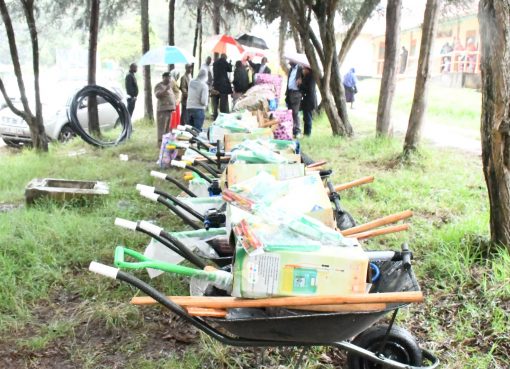The government has been called upon to declare fall armyworm a national disaster owing to their massive destruction on crops particularly maize thus threatening food security in the country.
A plant Protective Services Officer at Kilimo house Teresia Karanja lamented that in 2017 the country lost 20 percent of its maize harvest to the pest, while the situation is expected to worsen in 2018 as it has now affected 42 counties.
Karanja said the brutal pest had the capacity of causing 100 per cent destruction on maize not just in the country, but the entire continent and therefore asked the government to move fast and declare the worm a national disaster.
“If the government declares the worm a national disaster, more funds will flow from various organizations and international bodies for its management,” she advised.
Karanja said the American government has announced a reward of 200 million USA dollars for any scientist(s) who would come up with a way of wiping out the armyworms.
“The rapid spread of the army worm poses an unprecedented threat to food security, incomes, and livelihoods in the country, and it has pushed the cost of production of grain maize, seed maize, and baby corn higher,” Karanja stressed.
In addition, she said, its presence has implication on international trade restrictions to European countries where the insect is a quarantine pest.
“This means the pest has the capacity of destroying the country’s export trade because of reduced exports and trade restriction. The European Union and other international trade blocks do not accept any foodstuff or flowers with trails of pests in them,” Karanja noted.
The plant officer said the pest was not only irritating and frustrating to scientists but there is no one single strategy that can give sustainable management of fall armyworm. Combinations of various measures are recommended due to the pests’ capacity to evade many chemicals.
She faulted the media for ignoring a pest which has the capacity of bringing the entire country to its knees and urged them to stop mocking farmers who are spraying ash, pepper and fish soup because doing so had assisted in some areas including Embu.
Karanja said other pests were easier to manage because there was a precedence of their existence in other African countries, but for the fall armyworm there isn’t any, and even South Africa was grappling with the menace.
“Even USA has failed to eradicate it, but they have the advantage of winter which terminates all pests and by the time they multiply again farmers have harvested their crops,” she said.
She added that the pest had proved a puzzle to scientists all over the world adding that researching and coming up with chemicals that would successfully fight the fall armyworm might take many years.
The national government donated 873 litres of chemicals, which will be distributed to vulnerable farmers at Gichobo in Njoro Sub County to spray their crops against pests.
By Veronica Bosibori





